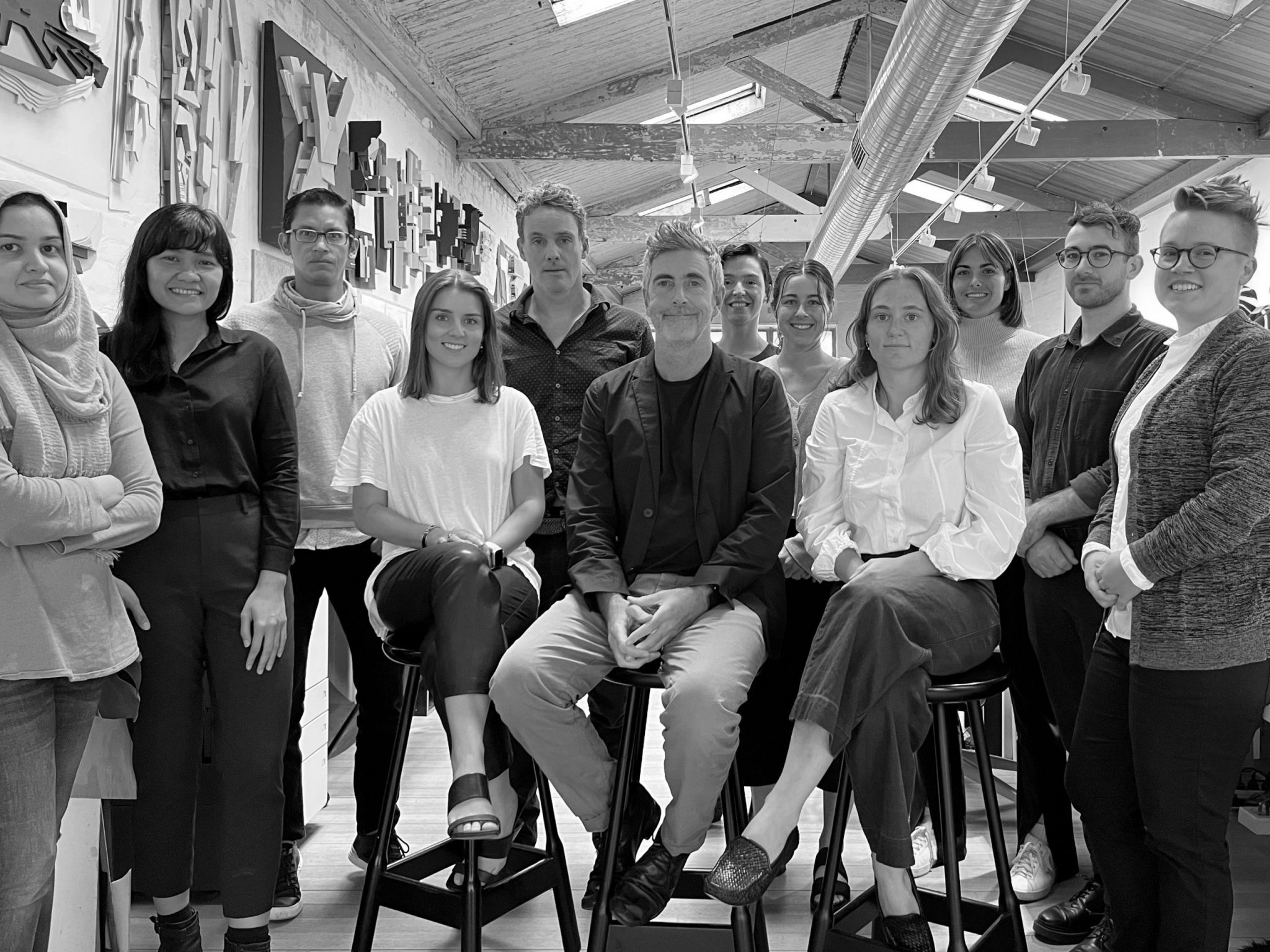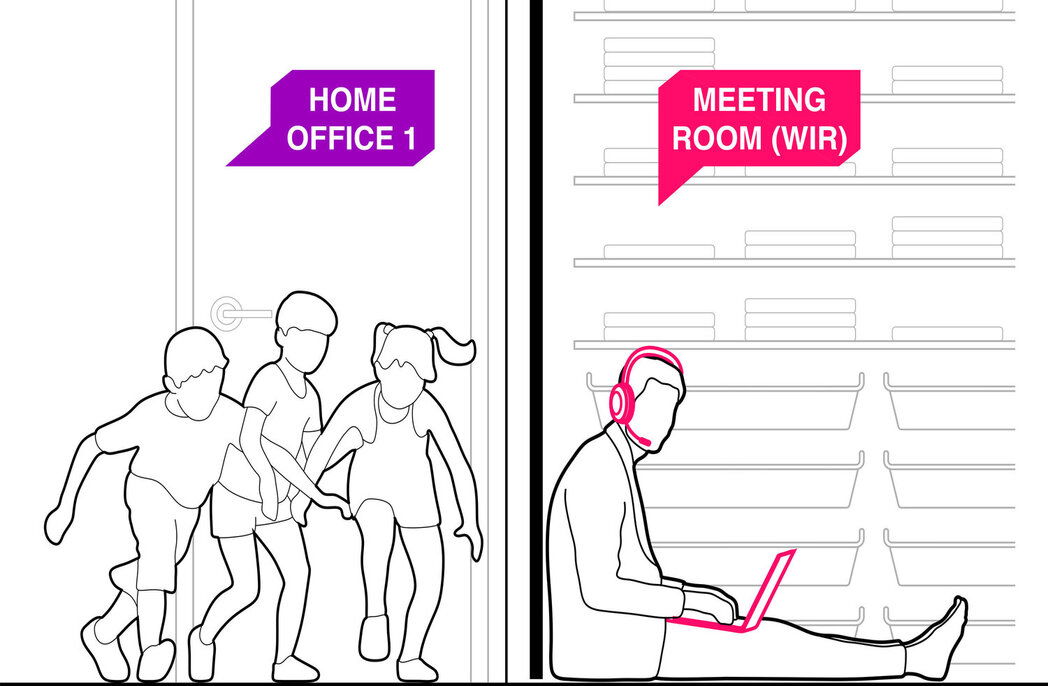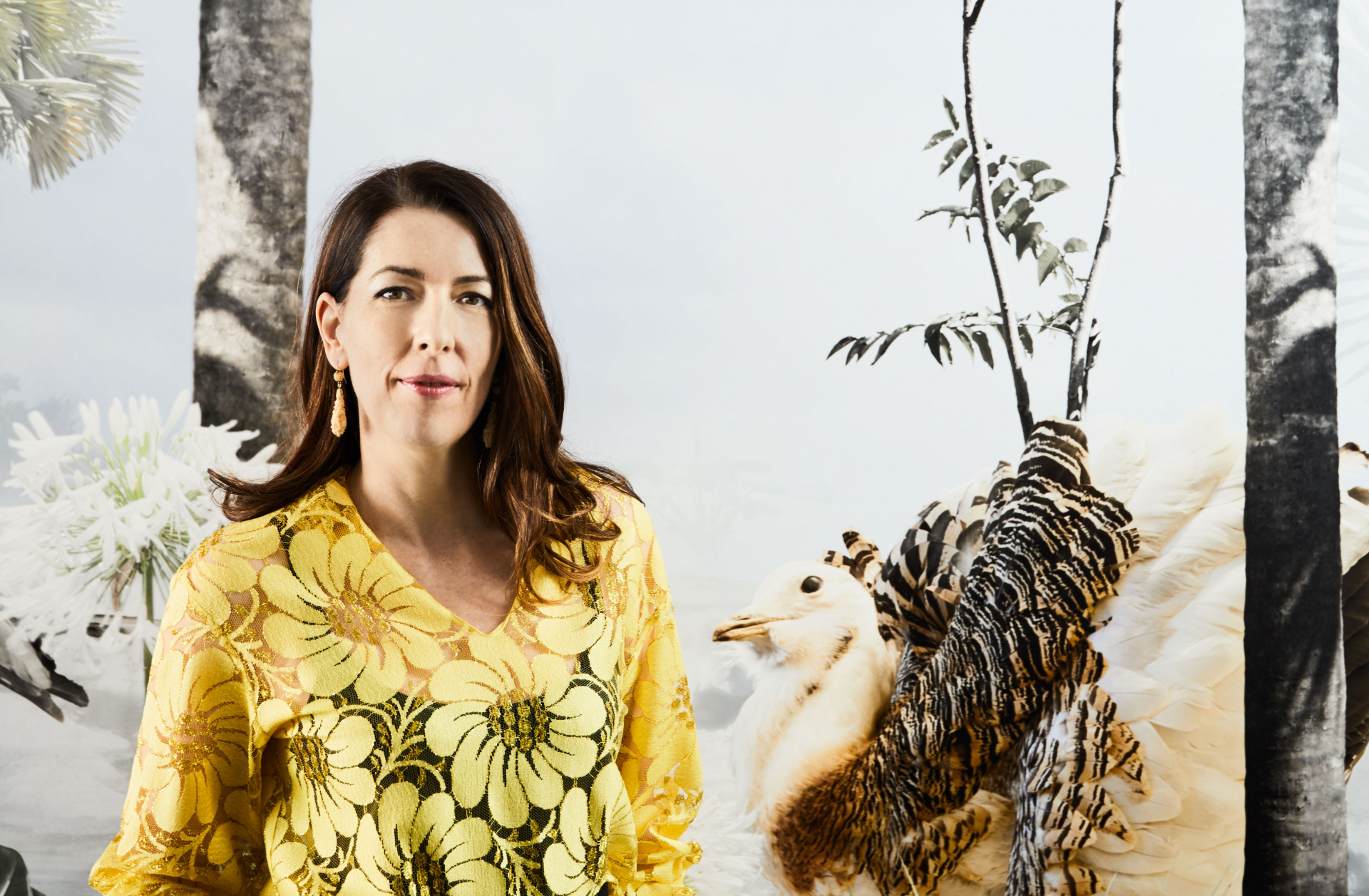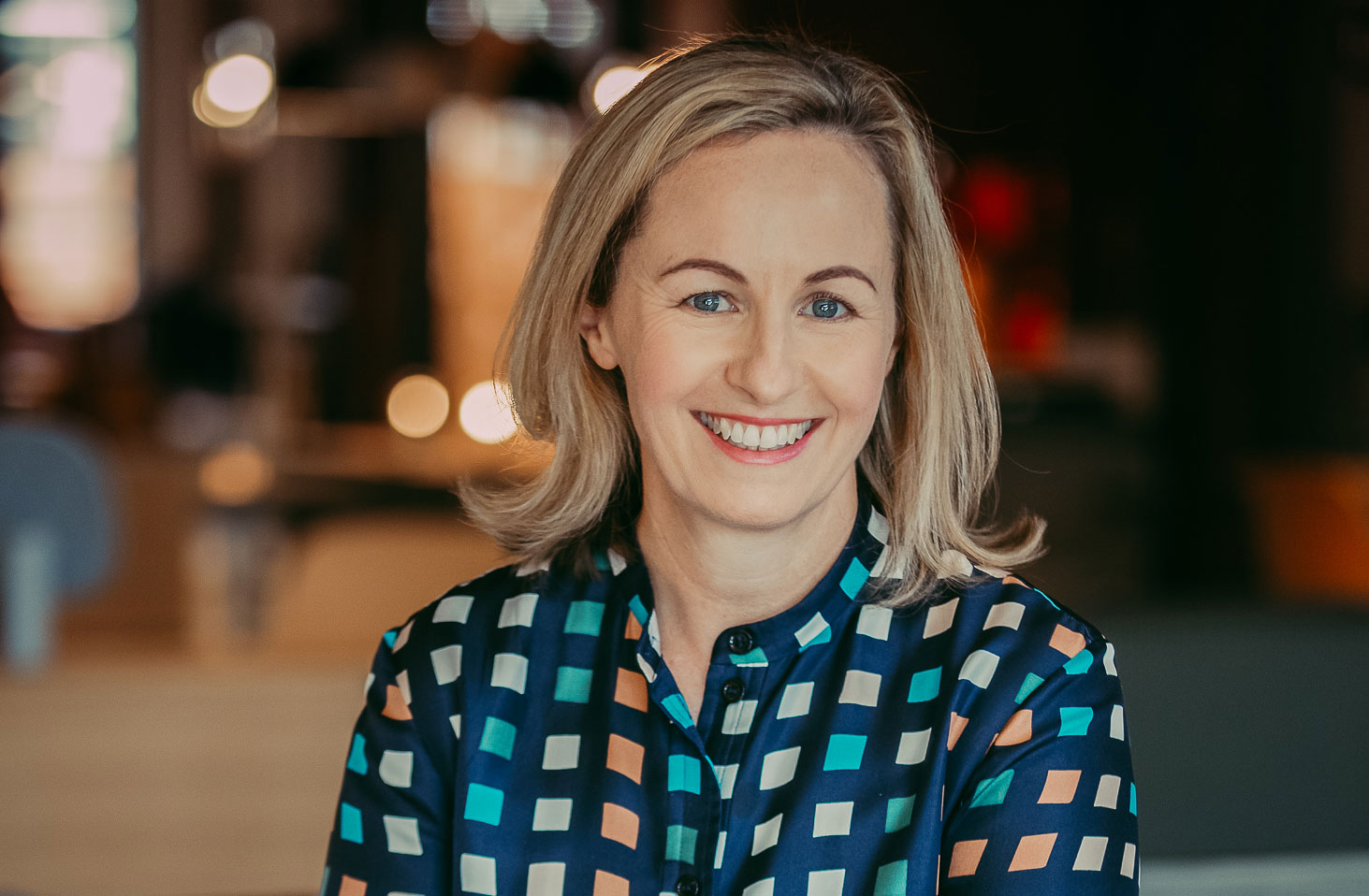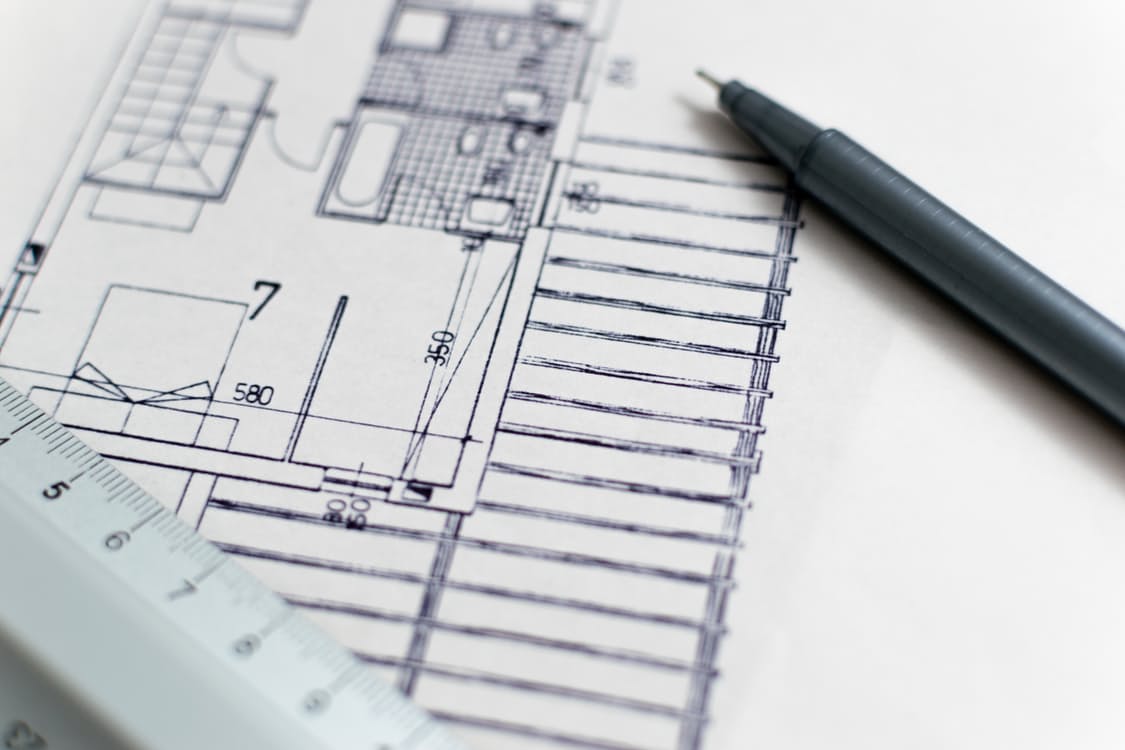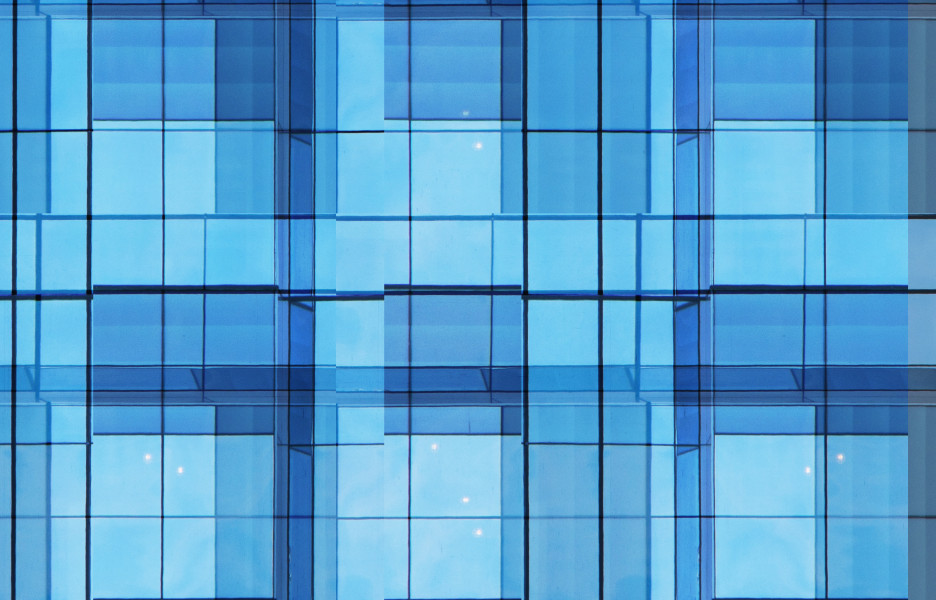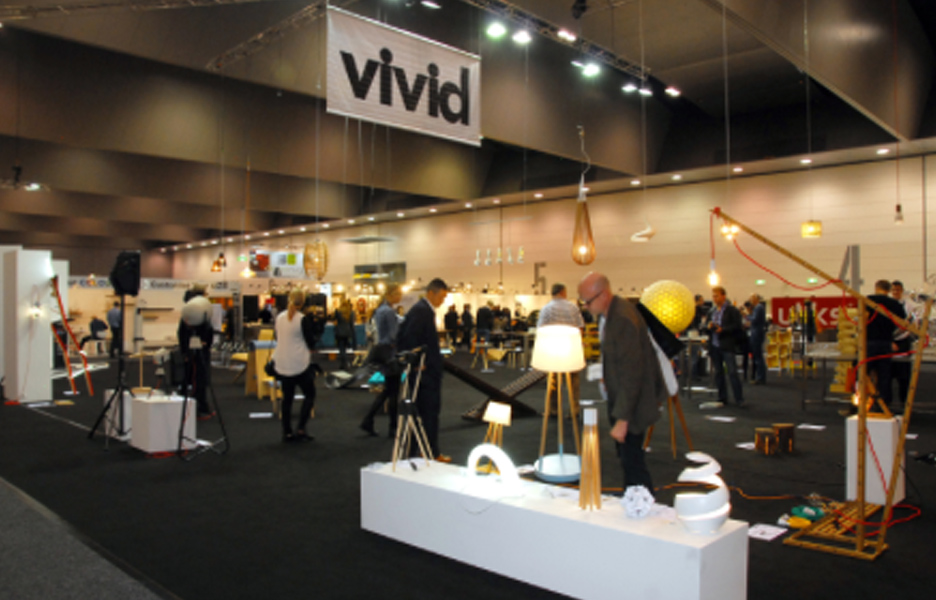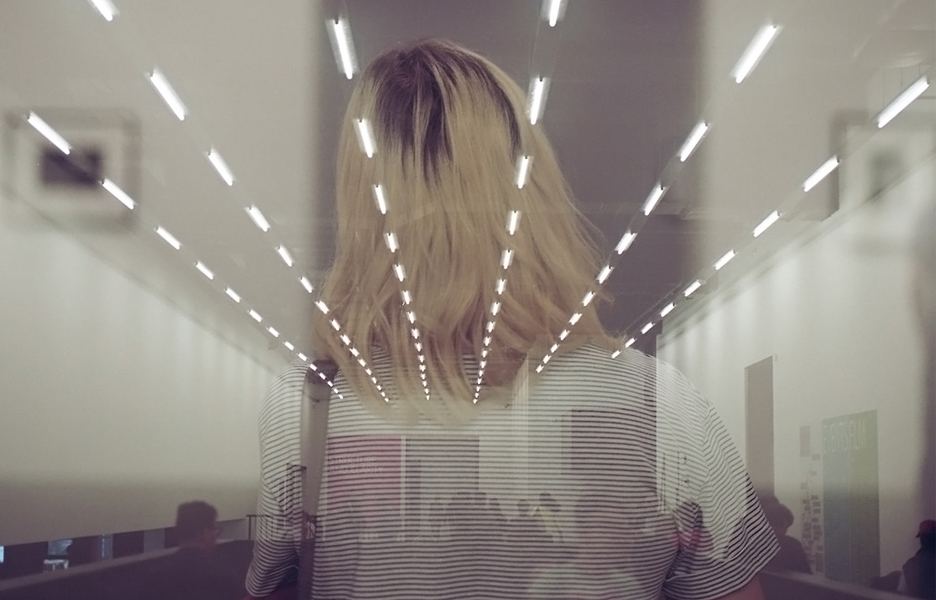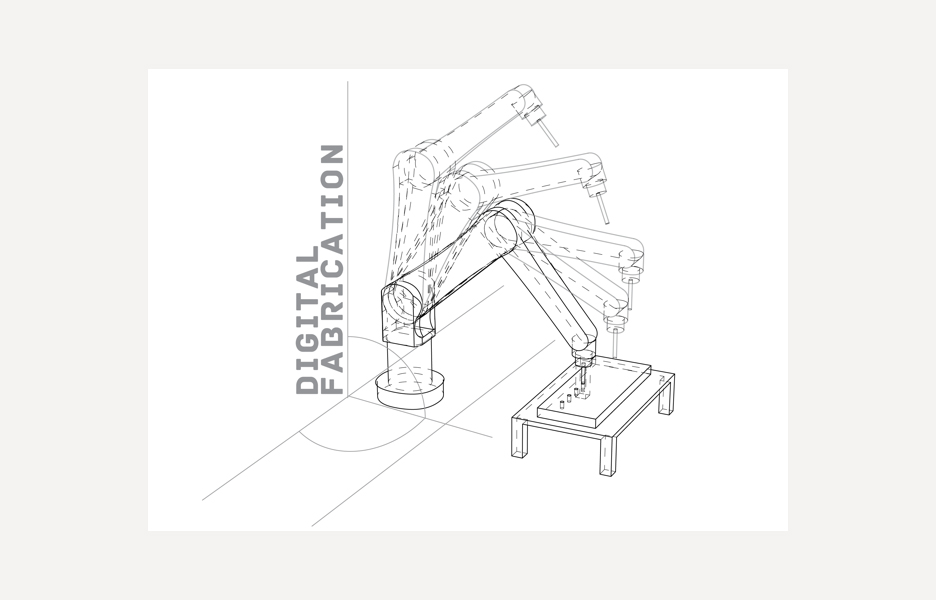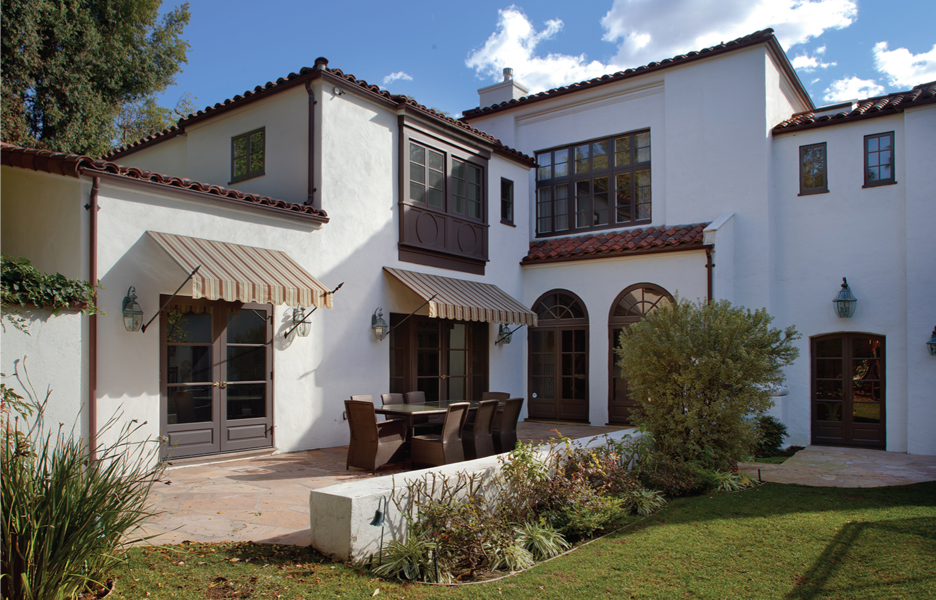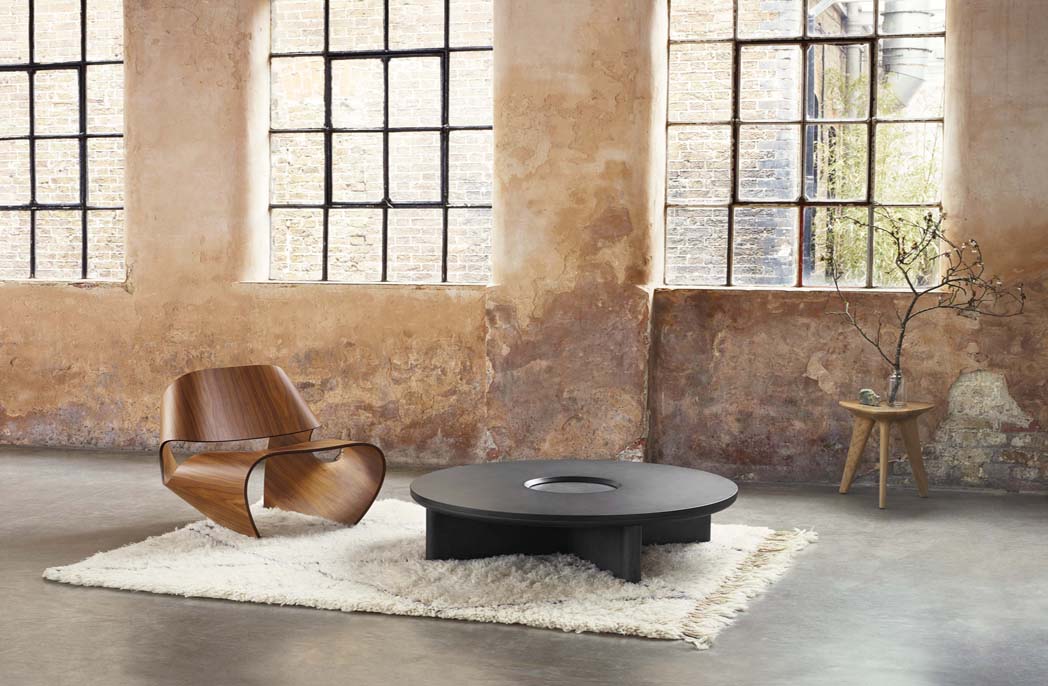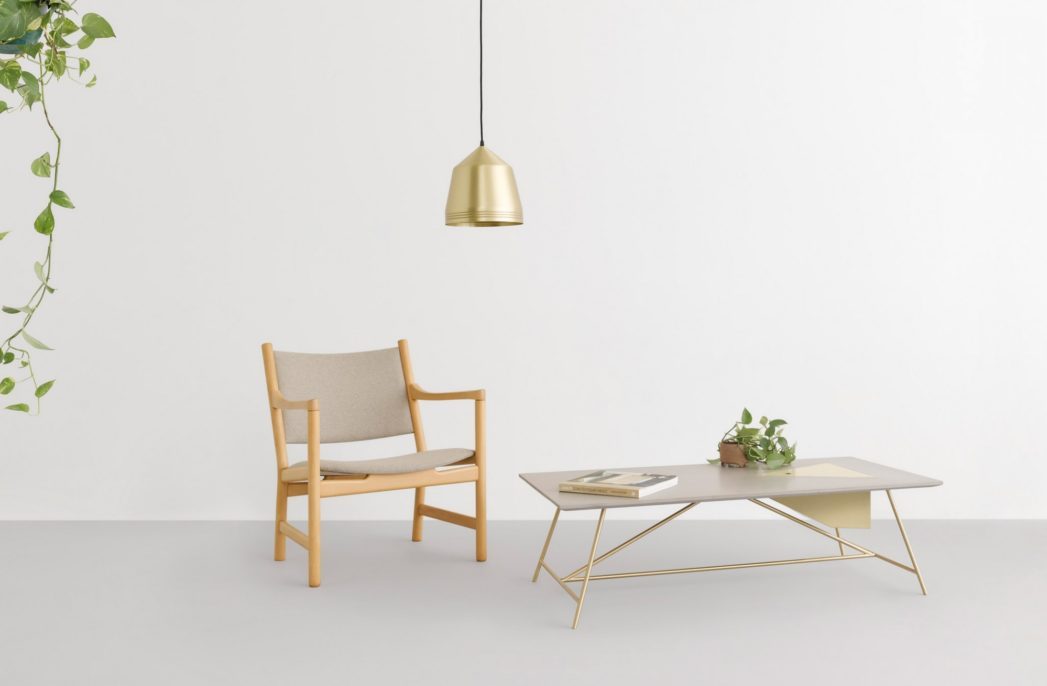
Getting to know Made For
Getting to know Made For
Share
Made For is a Melbourne-based architecture and design practice founded in 2016 by husband and wife team Mitchell Jones and Cara Stizza. We speak to Jones about Made For’s troupe of eight and the future of design after COVID.
“I go under the guise of creative director because it’s one of the only titles in an architecture firm that you don’t need a formal qualification in design for,” explains Mitchell Jones.
But Jones’ modesty should not be misinterpreted. Having grown up with his father’s construction and joinery-based business, Jones developed the skills and passion for creation and design at a very early age.
“It sounds over the top, but it’s been literally for my whole life,” he says. In talent and experience, he is more than qualified.
His partner and co-founder Cara Stizza is an interior designer and architect. “She’s the rock star and the talent, and I’m just all the other stuff,” says Jones, fondly. “I’m not sure which I fell in love with first: Cara, or her work, or both.”
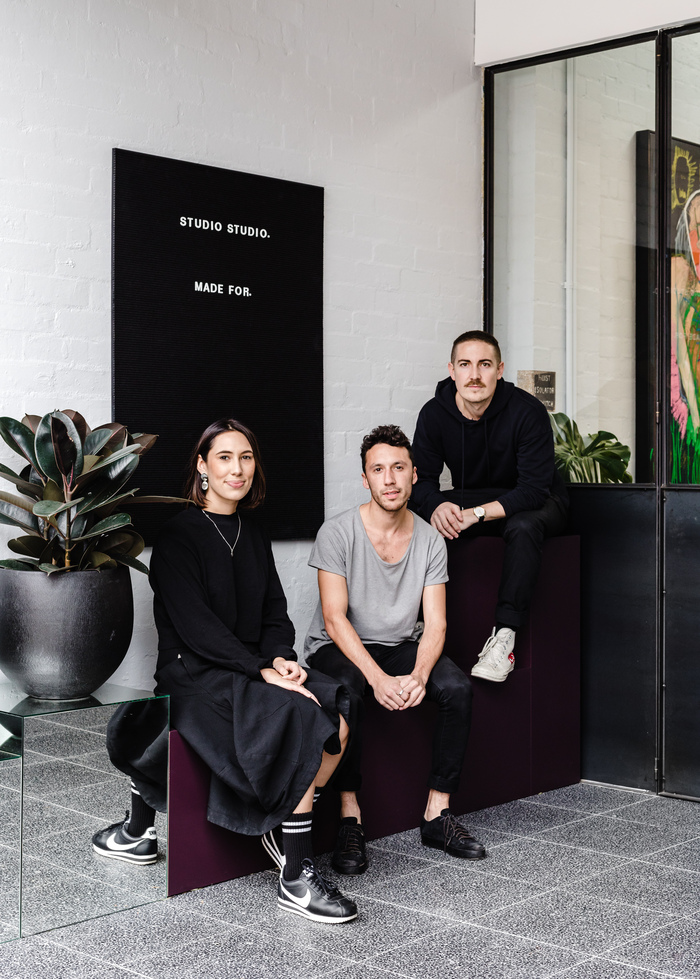
The pair is among the minority of businesses that have actually expanded under COVID, having grown from five to eight employees in just the last six months. They have used the pandemic as an opportunity to develop the residential arm of their business with society’s mercurial needs.
“People are now realising the importance of having a retreat in their own home. We’re not working from home anymore; we’re living from work,” says Jones. It is this particular distinction that has given rise to a new challenge for the company to tackle.
Alongside growing their business, Jones and Stizza have also been growing their family, celebrating the arrival of their first baby in July. “Everybody needs a running mate, and it’s nice if that’s also the person you love. They say you shouldn’t take your work home with you, but we definitely do. Our passion is the industry we work in.”
The practice’s qualifications reside in the areas of office design, space planning, commercial furniture, construction and project management, and interior design and architecture.
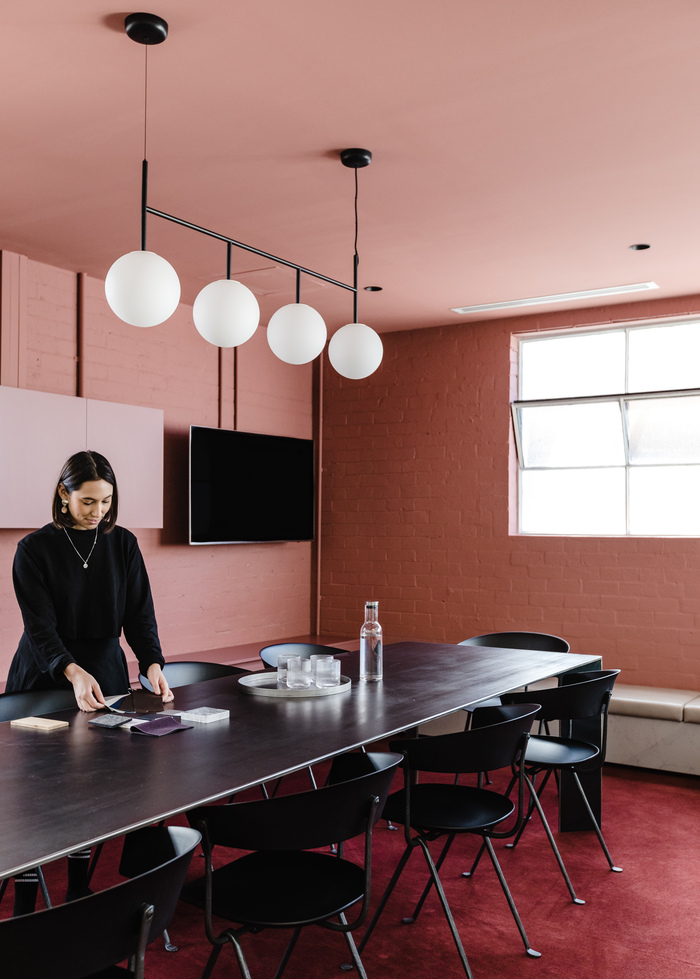
“Any business that has all of its eggs in one basket is always very volatile,” says Jones. “You need to accept that you can be a jack of all trades and a master of none, because if you master any one thing in particular, you often don’t pay enough attention to what is going on elsewhere.”
Jones and Stizza decided on the name of their practice for its client-facing connotations.
“Made For has always been about pushing our own agenda and conceived ideas about workplace or home to the side, and remembering that whatever we’re doing is for the end user,” explains Jones.
“Our brand is just a vehicle for delivering whatever the client requires to help them to achieve a family home or exceptional workplace or whatever it might be.”
No place like home
Under normal circumstances, the team works out of an office in Collingwood. A former steel manufacturing warehouse, it is now a co-working space they designed and refurbished themselves. It is also home to their working studio space, StudioStudio, where they make and create custom timber and steel furniture. Jones feels it is a nod to his own past in his father’s carpentry and joinery business. “It’s a nice full circle for me,” he says.
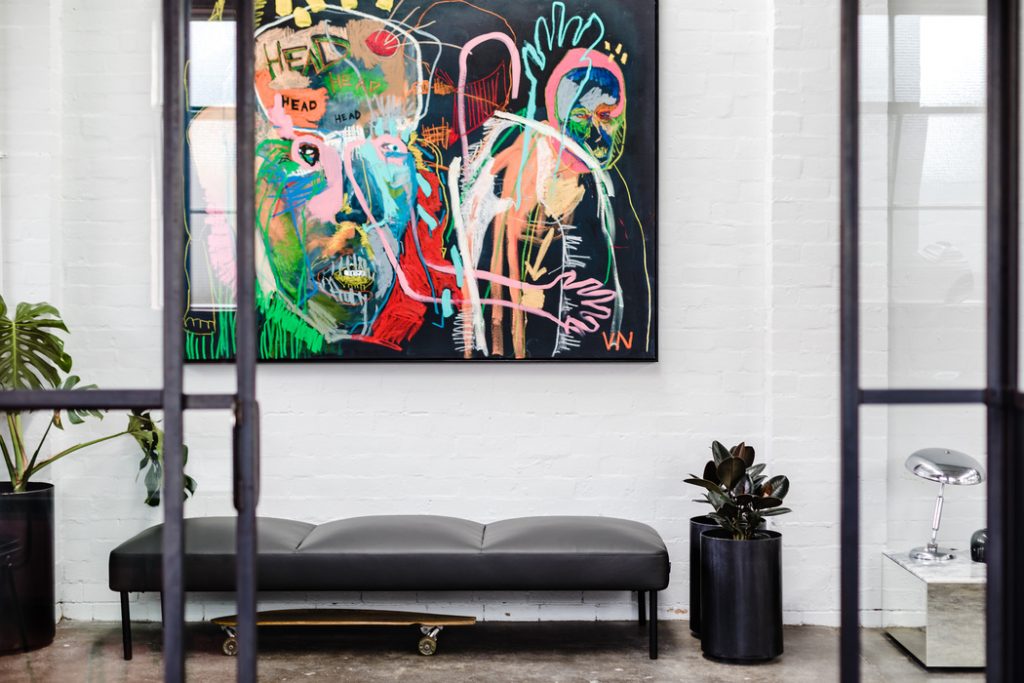
The office is a capacious and contemporary space, purposively designed, with skeletal partition walls and stainless steel surfaces. But it’s also softened by accents of earthy hues, from clay pink to stone blue.
“Once clients came here and saw our office, we started converting a lot of work,” says Jones. “It does legitimise the business, to see that they’re able to create and fit an incredible office. And because we designed and made most of the furniture, that’s been another string to the bow.”
The practice’s ambition has been to deliver a service that is honest and accessible. Jones agrees that there is still a lot of collective misunderstanding around what an architect does, but that this opacity is industry bred and led.
“We can overcomplicate what we do. The client doesn’t need to know what you’re doing in the background: they just want to be cuddled and looked after and taken right through the process.”
Jones and Stizza have modified, simplified and distilled down their process, particularly for the benefit of clients who have not been through the process before. As a result, their process gives rise to a more collaborative working style.
“We liked, when we were small, that we could say ‘no’ to projects that didn’t suit us,” says Jones. “And we still say ‘no’ to projects that don’t suit us now. And what suits us is never, ever budget and never, ever timeline: it’s always the client’s willingness to be partners in the process. It’s not us doing everything for them, or them telling us exactly what to do.”
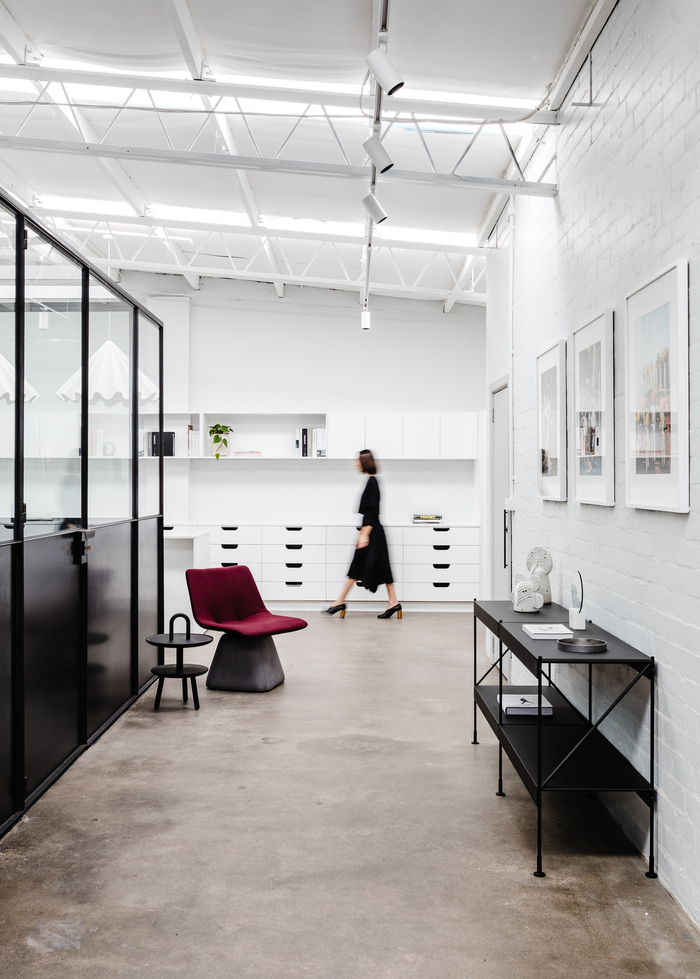
Process
Upfront workshopping is Jones’ preferred method for driving results, “even sometimes to the point where it drives my clients insane,” he says. “I ask my clients: what if the workplace could make your staff five percent more productive? Or what if the workplace could make your staff 10 percent happier to come to work? Or what if we could do something that meant they could have one more great relationship at work with somebody else? What could that do for someone, for staff retention and for well-being, productivity and collaboration?”
When COVID first hit, the team lost three large projects, which were either placed on hold or completely cancelled. But as a testament to their adaptability, the small team currently has a couple of commercial buildings, five workplaces and 10 homes in the portfolio, at varying stages of completion.
“It’s been a crazy change, because we’ve always been predominantly workplaces with one or two homes on the side,” notes Jones.
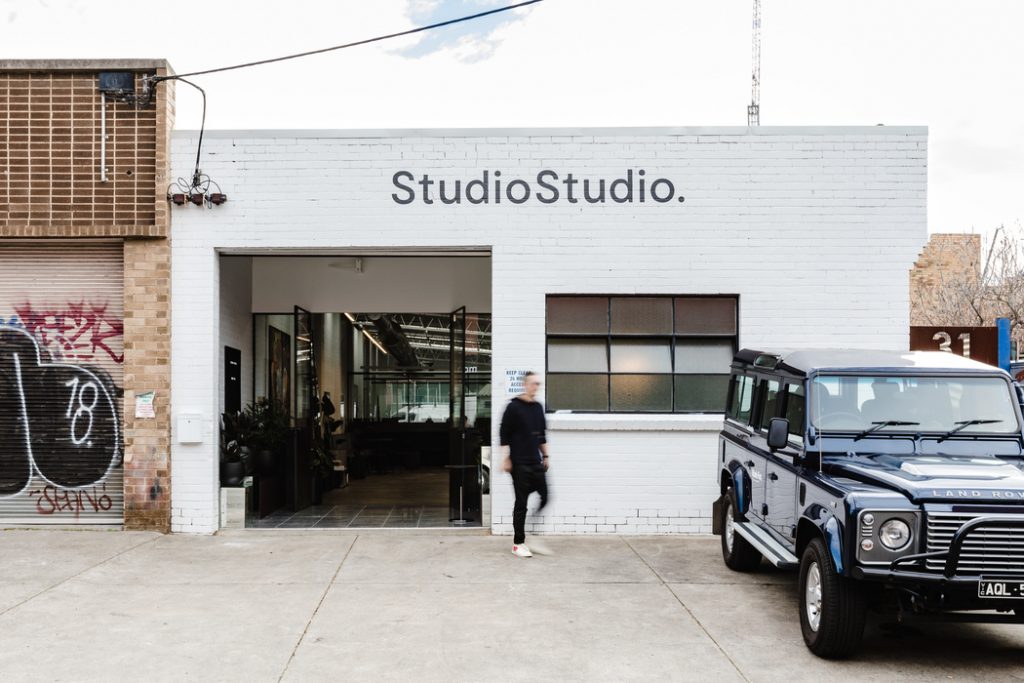
The future for the business looks promising, despite the industry hurdles, but Jones is not thinking too far ahead. “Our goals are linked to our personal goals. Every quarter we reassess where we’re at and distil what we’re trying to do down to five things. And they’re not time-based: they’re quality- and product-based. We tie everything we do back to those values, rather than a long-term goal.”
Rising at pace with Made For is Adelaide’s Sans-Arc Studio, currently dominating hospitality design in the capital. We chatted to founder Matiya Marovich about being inspired by scale in Hanoi and spruiking sustainability for hospitality clients.
Lead photo: Made For co-founders Cara Stizza and Mitchell Jones. Photo: Amelia Stanwix.
You Might also Like
